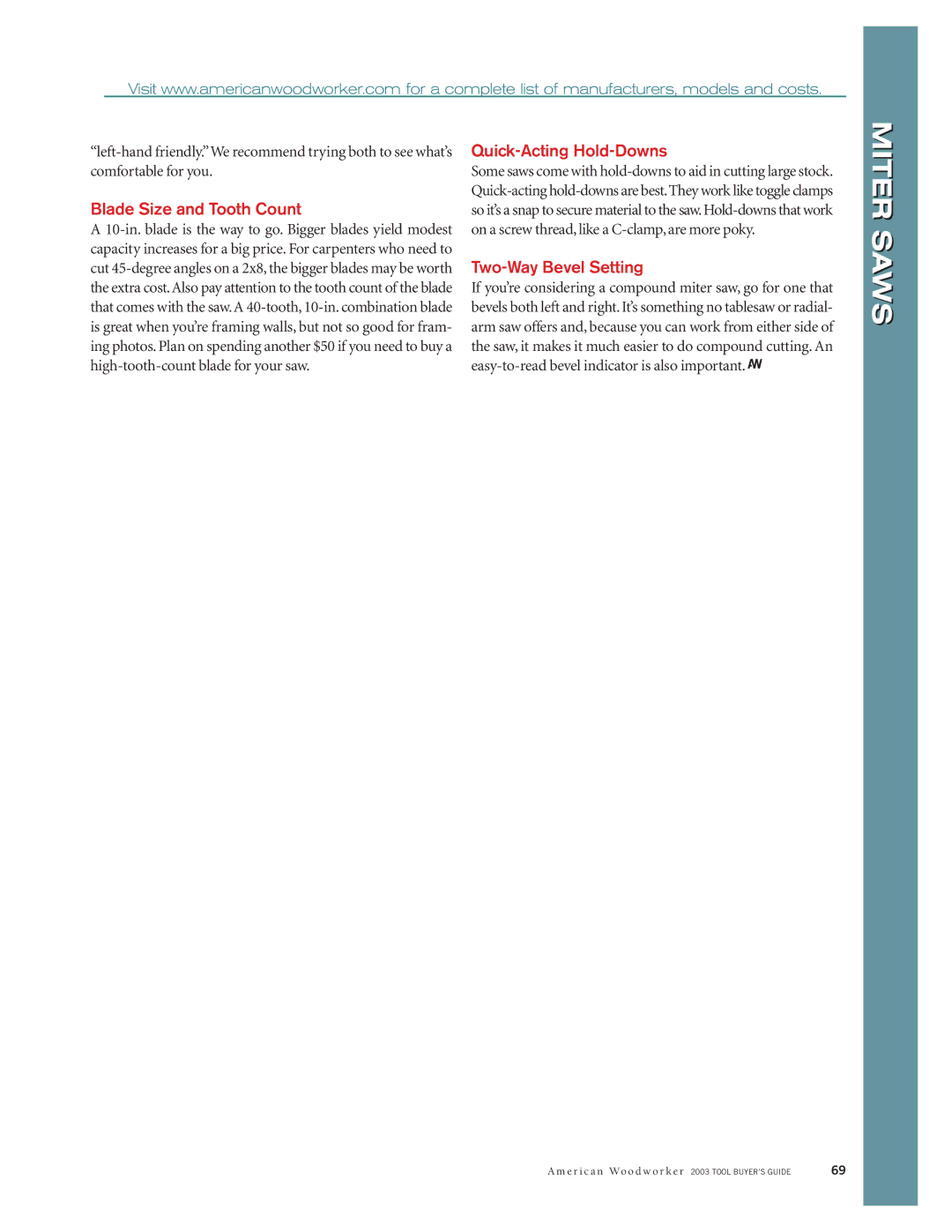Visit www.americanwoodworker.com for a complete list of manufacturers, models and costs.
“left-hand friendly.”We recommend trying both to see what’s comfortable for you.
Blade Size and Tooth Count
A 10-in. blade is the way to go. Bigger blades yield modest capacity increases for a big price. For carpenters who need to cut 45-degree angles on a 2x8,the bigger blades may be worth the extra cost.Also pay attention to the tooth count of the blade that comes with the saw.A 40-tooth,10-in. combination blade is great when you’re framing walls, but not so good for fram- ing photos. Plan on spending another $50 if you need to buy a high-tooth-count blade for your saw.
Quick-Acting Hold-Downs
Some saws come with hold-downs to aid in cutting large stock. Quick-acting hold-downs are best.They work like toggle clamps so it’s a snap to secure material to the saw.Hold-downs that work on a screw thread,like a C-clamp,are more poky.
Two-Way Bevel Setting
If you’re considering a compound miter saw, go for one that bevels both left and right. It’s something no tablesaw or radial- arm saw offers and, because you can work from either side of the saw, it makes it much easier to do compound cutting. An easy-to-read bevel indicator is also important. 
MITER SAWS
A m e r i c a n Wo o d w o r k e r 2003 TOOL BUYER’S GUIDE | 69 |

![]()
